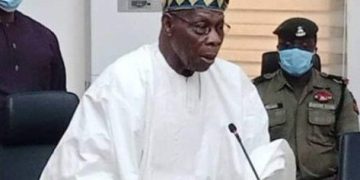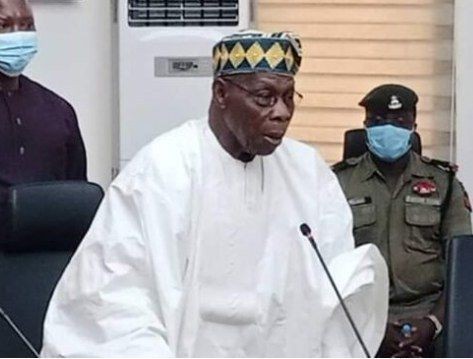Olusegun Obasanjo, former President of Nigeria, shared that his decision to speak out on important national and international matters led to his imprisonment under the military dictatorship of General Sani Abacha in 1995. He made these remarks during a meeting with 15 rising African leaders at the Olusegun Obasanjo Presidential Library (OOPL).
Obasanjo explained that his outspoken stance became a liability during Abacha’s regime, which ultimately led to his incarceration. “My time in prison was a significant challenge, caused by my refusal to remain silent,” he said, emphasizing the importance of addressing vital issues, even at the cost of personal repercussions.
A statement from his Special Assistant on Media, Kehinde Akinyemi, also revealed that Obasanjo’s strong desire to prevent Nigeria’s disintegration motivated him to seek the presidency in 1999. Before this, Obasanjo had retired from the military at the age of 42 and shifted to farming.
Addressing young leaders from the Future Africa Leaders Foundation, including those honored with the Future Africa Leaders Awards, Obasanjo urged them to adopt leadership values focused on the advancement of the continent. He stressed the importance of strong, resilient leadership, highlighting that his own journey from military officer to president was influenced by his willingness to confront adversity.
“I joined the military and retired at 42,” Obasanjo shared. “I was still young and full of energy, so I turned to farming. However, during that period, I ended up in prison—not something I sought. It happened because I refused to remain quiet on issues that mattered. It was a tough experience, and when I was released, the country was in turmoil. The need for leadership was evident, and pressure for change was growing.”
On the issue of African debt, Obasanjo criticized the mismanagement and corruption that often surrounded loans. He cited an example in Nigeria, where a loan for a carpet factory was fully repaid, even though the project was never completed.
Obasanjo also commended Pastor Chris Oyakhilome, founder of the Future Africa Leaders Foundation, for hosting the 2024 edition of the program. He encouraged the program’s participants to lead by example, stating, “You are the leaders of today, not tomorrow. Let your actions inspire and uplift others.”















